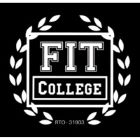
This role has a high level of AI exposure. While some human skills are required, many tasks could be automated or replaced by new technology.
Explore all careersAn Instructional Designer creates training programs, collaborates with industry leaders, and manages learning materials, requiring strong communication, multitasking, and time management.
Get qualified to work as an Instructional Designer with a course recognised across Australia. Speak to a training provider to learn more.













In Australia, a full time Instructional Designer generally earns $2,173 per week ($112,996 annual salary) before tax. This is a median figure for full-time employees and should be considered a guide only. As you gain more experience you can expect a potentially higher salary than people who are new to the industry.
 Courses.com.au Team
Courses.com.au Team
This industry has seen a decrease in employment numbers over the last five years. There are currently 20,700 people working in this field in Australia and many of them specialise as an Instructional Designer. Instructional Designers may find work across all regions of Australia, particularly in larger towns and cities.
Source: Australian Government Labour Market Insights
 Courses.com.au Team
Courses.com.au Team
If you’re interested in a career as an Instructional Designer, a Diploma of Training Design and Development is an ideal qualification. This course will show you how to design and develop a range of learning resources and assessment tools. You could also consider a Graduate Diploma of Adult Language, Literacy and Numeracy Practice, a Certificate IV in Training and Assessment or a Diploma of Vocational Education and Training.
 Courses.com.au Team
Courses.com.au Team
Browse occupations related to Instructional Designer



If you're looking to enhance your career in the field of education and training, discovering the right Instructional Designer courses in Australian Capital Territory can be a transformative step. With a total of 20 courses available in the region, learners have various options to suit their experience levels, ranging from beginner courses aimed at those with no prior experience to advanced qualifications for experienced professionals. Popular beginner courses include Design and Develop Assessment Tools TAEASS512 and Work Effectively in the VET Sector TAEPDD401, perfect for individuals starting their journey in the instructional design realm.
For those seeking to advance their careers, the Australian Capital Territory offers a selection of advanced courses such as the Diploma of Training Design and Development TAE50216 and a Graduate Diploma of Health Professional Education. By enrolling in these programs, learners can develop specialised skills that enhance their employability within various educational sectors. These qualifications are recognised and respected, ensuring that graduates are well-prepared to face the challenges of educational design and development.
When it comes to training providers, DTC is a prominent establishment in the Australian Capital Territory, offering the highly regarded Diploma of Training Design and Development. This institution is a Registered Training Organisation (RTO), ensuring that their courses meet the highest industry standards. Understanding the role of reputable training providers is essential for prospective students, as it builds confidence in the quality and recognition of the courses completed.
As an aspiring Instructional Designer, it's beneficial to explore the various job roles associated with this field, which include positions such as Trainer and Assessor, E-learning Developer, and Learning Consultant. Each of these roles requires specific competencies that can be developed through targeted training. The skills gained from these job roles allow professionals to contribute meaningfully to educational environments and positively impact learners.
Furthermore, students can benefit from exploring courses in related fields such as Education and Training and Training Design and Development. These additional disciplines provide valuable insights into the broader educational landscape, equipping learners with a well-rounded understanding of the industry. With such resources available in the Australian Capital Territory, those serious about making a difference in educational practices can find the right pathways to success.